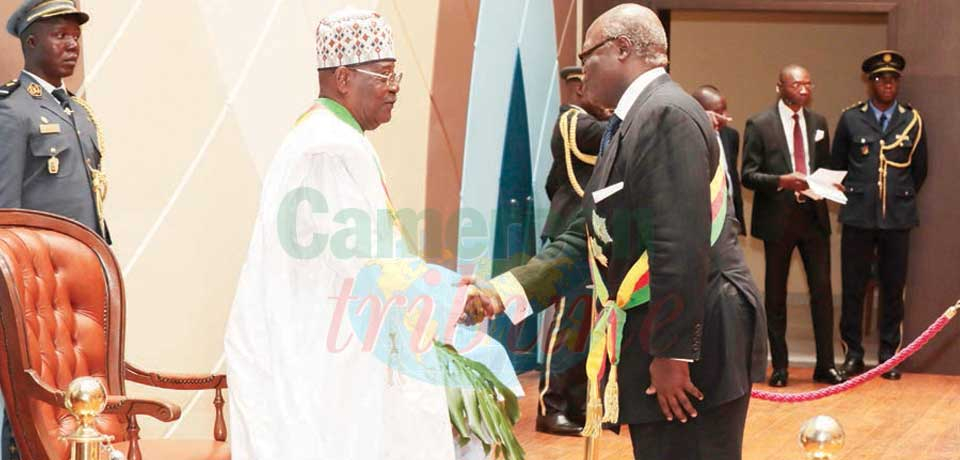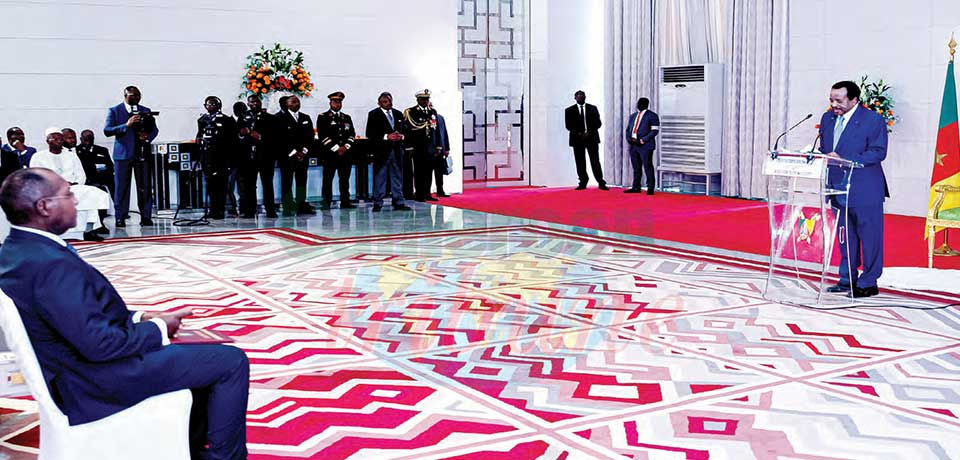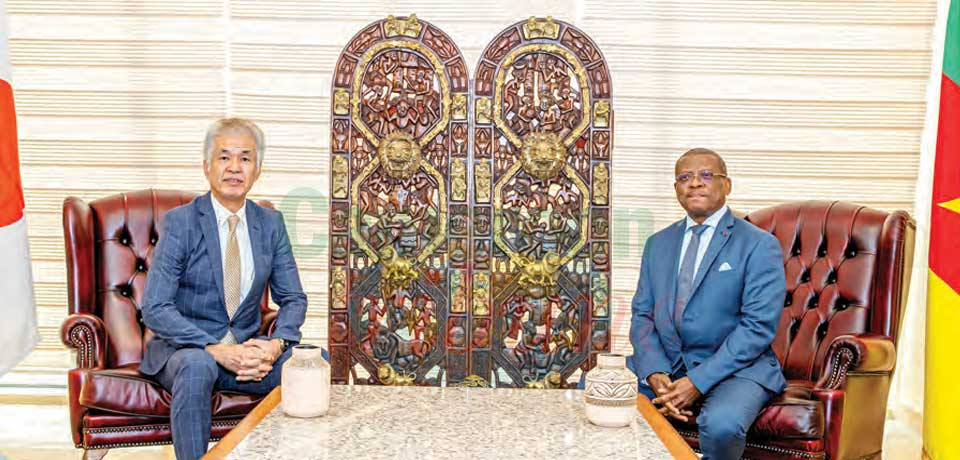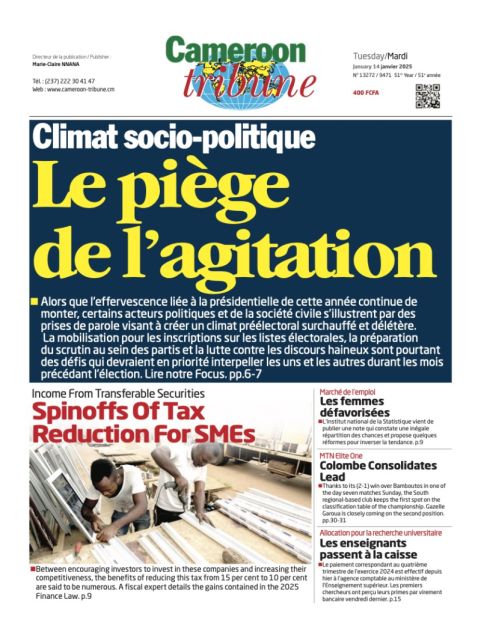One year already since the start of what is commonly called; «the anglophone crisis». It began on 10 October 2016 with claims from trade unionists, but it quickly transposed into the political arena. This was supported by the fact that some fellow compatriots whose confessed purpose was none other than the partition of Cameroon for the most extremists, or the revision of the present form of the State, saw it as a kind of panacea to the issues raised.
In a context where the crisis seems to be sinking and where voices rise here and there, evoking henceforth and at any rate dialogue as a therapeutic shock to curb a symptomatically cancerous evil, one is tempted to rewind the hands of time for historical purposes, to the course of these last months whose milestones are more than indicative of what until then, the State through the President of the Republic, His Excellency Paul BIYA, has done on this matter.
Let us review the history and the agenda of the last twelve months.
The first pages of the month of September 2016, are well inscribed with trade unionists claims expressed by English-speaking lawyers, and almost simultaneously by English-speaking teachers. On 10 October 2016, the former launched a strike action. The story reveals (perhaps coincidentally?) that the strike of the latter becomes effective the same day. The desires of both parties thus suffer from no ambiguity.
Indeed, by boycotting courtrooms in the two regions of the North-West and South-West, these lawyers considered that "the way in which justice is rendered in these regions is not in conformity with the Common Law (the Anglo-Saxon law). Yet, it is what they studied in school and during their training as lawyers." Four main problems are raised: the non-existence of an English version of the OHADA Uniform Acts, the main documents used in commercial proceedings before the Cameroonian courts; the use of the Francophone Civil Code in the jurisdictions of the English-speaking regions in place of the Common Law; the absence of English law in the Cameroonian judicial system (no Common Law Section in the Supreme Court to examine appeals from the Northwest and South-West jurisdictions and no English-speaking section in NSAM ); the exercise in the two English-speaking regions of magistrates who do not master the Common Law and could barely express themselves in English.
What about teachers then? History also clearly reveals that their complaints are mainly related to the payment of arrears for the 2015-2016 academic year, beyond issues related to the improvement of their working conditions. It was noticed that students joined them and demanded the payment of their excellence awards, but also the cancellation of the CFAF 10,000 penalty; for the late payment of fees as instituted by the Vice Chancellor of the University of Buea.
Four other claims were added to the above. They concerned the clarification and respect of admission procedures of students in universities of Anglo-Saxon tradition; a proper representation of Anglophones in the recruitment of teachers and support staff in Universities; a drop in the number of Francophone teachers in the Anglophone zone, and the creation of a Higher Teacher's Training College exclusively reserved for the English-speaking regions.
Historically, these are the grievances that triggered of the current crisis. This was a test on the sensitivity of the Head of State, who promptly gave firm instructions to the Government for urgent and appropriate measures.
History, again, shows in its pages that sectoral and global responses have been made. For the benefit of lawyers, we note, among the most significant answers:
1. The provision of the official English version of the OHADA Uniform Acts and the Cameroonian Penal Code;
2. The creation of an Anglophone Section at the National School of Administration and Magistracy of Cameroon (NSAM);
3. The establishment of a Common Law Bench at the Supreme Court of Cameroon, to examine specifically and methodically appeals from the Northwest and South-West jurisdictions;
4. The creation of a Faculty of Law and Political Sciences at the University of Buea;
5. The creation of the Departments of English Law in the Universities of Douala, Maroua, N'Gaoundéré and Dschang, and the Departments of Public Law in the Universities of Bamenda and Buea;
6. Recruitment and placement of appropriate judicial personnel in the North West and South West Courts of Appeal;
7. The appointment by Presidential Decree of an English-speaking Magistrate working within the framework of Common Law to the post of President of the Judicial Bench at the Supreme Court;
8. The appointment of an English-speaking Magistrate as State Prosecutor at the Bamenda Courts of First Instance and the High Court.
Regarding the demands of Anglophone teachers, the Government has equally provided appropriate responses, depending on the cases. We note for example, concerning the representation of Anglophones in the positions of teachers and support staff of State Universities, that members of the interministerial committee set up for the occasion noted unanimously that, "universities of Buea and Bamenda which fully benefit from their administrative and financial autonomy, recruit in priority teachers and support staff from the two English-speaking regions, without excluding the deserving Francophones."
Concerning the creation of a dedicated Higher Teacher's Training College, the same committee noted that there cannot be a "Higher Teacher's Training College" exclusively reserved for citizens of a single region or two regions.
In connection with the admission of students to universities of Anglo-Saxon tradition, the Inter-ministerial Committee created by the Government has chosen simplification: the only constraint for the admission of a student is to fulfill the conditions set by applicable regulations. At the same time, excellence awards were paid to students. The CFAF 10,000 penalty on the late payment of tuition fees has been abolished.
Lastly, history cannot erase the decision of the Head of State to disburse two billion CFA francs as subsidy to secular and lay private schools, as well as the authorisation for the special recruitment of 1,000 young bilingual Cameroonian teachers, graduates of higher education, especially in scientific and technical subjects. Young teachers are thus the priority in schools of regions with a significant teacher shortage in these fields.
Beyond these specific responses provided by the Government to the problems raised by Anglophone trade unionists, the pages of history here revisited reveal two other categories of responses to this crisis, the more global ones, because they a...
Cet article complet est réservé aux abonnés
Déjà abonné ? Identifiez-vous >
Accédez en illimité à Cameroon Tribune Digital à partir de 26250 FCFA
Je M'abonne1 minute suffit pour vous abonner à Cameroon Tribune Digital !
- Votre numéro spécial cameroon-tribune en version numérique
- Des encarts
- Des appels d'offres exclusives
- D'avant-première (accès 24h avant la publication)
- Des éditions consultables sur tous supports (smartphone, tablettes, PC)














Commentaires